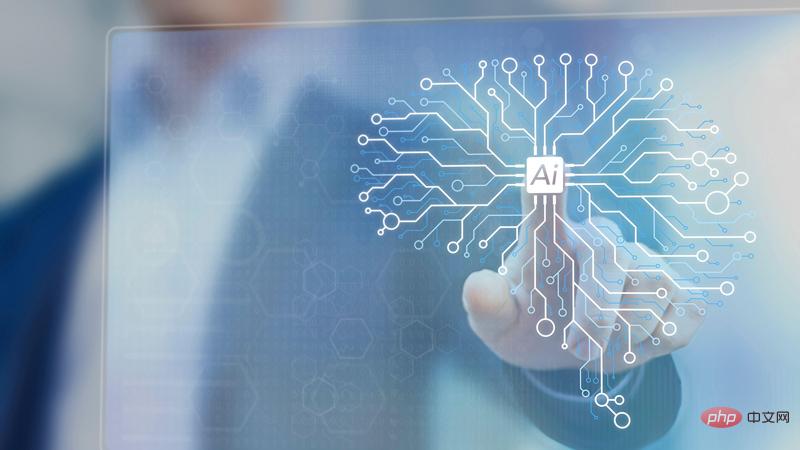Home >Technology peripherals >AI >ChatGPT will revolutionize the way people work
ChatGPT will revolutionize the way people work
- 青灯夜游forward
- 2023-03-31 22:42:00875browse
ChatGPT may just be the first example of a commercial application of an artificial intelligence tool, and its capabilities are proving increasingly powerful. But with technology like this being adopted so widely, will artificial intelligence be able to replace humans in the enterprise? The question becomes as urgent as ever.

So, will ChatGPT take away human jobs?
In fact, the answer to this question is more than a simple "yes" or "no" Much more complex. An important reason for the rise of ChatGPT is that it has proven to be a more valuable and powerful tool and that it can push the boundaries of what people can and cannot accomplish.
AI is not foolproof, it is still in the early stages of development, and it is still prone to bias and error, which means that, despite its astounding progress, it will still take a long time to achieve greater accuracy. sex and reducing the risks involved in relying solely on it, there is still a long way to go. This highlights the need for human judgment and expertise to be able to expertly judge the results generated by AI, distinguish between good and bad results, and fully exploit its capabilities.
ChatGPT represents a revolution in the efficiency, effectiveness, speed and sustainability of what people do. As more and more AI tools appear on the cusp of the wave of applications created by OpenAI, professionals will know exactly how to leverage AI tools to replace those who are not comfortable with them, and learn to take advantage of them. Use your strength to your advantage.
That being said, there are definitely some jobs that are likely to experience greater change than others, and it’s important to be prepared and understand how the expectations and nature of the jobs that will be most affected will change.
Here’s a look at some of the jobs most likely to be affected, and how to prepare for the coming shift.
(1) Communications and Media
Jobs in advertising, content creation, copywriting, copyediting, and journalism will be the first to feel the full impact of ChatGPT. Since AI technology is inherently trained to analyze and understand text data, it's natural to assume that ChatGPT could easily directly transform media-related jobs.
This technology enables article writing, editing and fact-checking, script writing for content creators, copywriting for social posts and ads, and more.
Having said that, it takes a lot of work to create authentic content to truly break through the clutter and noise of content on the internet. The brainstorming, analysis, and human judgment that media professionals perform every day are not scalable and cannot be easily automated—which means ChatGPT can serve as an empowering tool rather than completely replace current media efforts.
(2) Customer Service and Engagement
For a long time now, chatbots have taken over conversations with customers online—at least the initial conversations. However, the natural flow and usefulness of these conversations has been a pain point for consumers due to predetermined paths and a lack of flexibility to tailor conversations to each user's individual needs. This is where conversational AI comes into play: ChatGPT’s ability to have human-like conversations with users and solve their individual problems has the ability to raise the bar for customer service automation, replacing some of the upfront work that human agents need to do. To understand the nature of each problem, while focusing on high-value customers and handling more complex situations, requires human interaction and attention.
(3) Software Engineering, Network Engineering and Coding
As we all know, software engineers are one of the most popular and respected talents today. Having said that, this work requires a lot of manual work, close attention over time, and quality assurance to build the complex software that people are accustomed to using.
The power of ChatGPT is its ability to generate code faster than humans, taking speed to a whole new level when building software or websites. Not only does it require a lot of manual coding and building, but it also makes it faster and easier to identify bugs and inconsistencies that prevent rapid releases.
In conclusion, just like media, software engineering can leverage ChatGPT to increase code generation speed, cut resource costs, and equip software engineers with the right tools to increase their individual and collective efficiency.
A timely and complex question
Returning to the original question of whether ChatGPT will replace HR, the answer is not that straightforward, although in some cases , the answer is probably yes. But most importantly, it will have a greater impact on those who are able to use it to succeed, as opposed to those who refuse to use the technology.
The above is the detailed content of ChatGPT will revolutionize the way people work. For more information, please follow other related articles on the PHP Chinese website!
Related articles
See more- Technology trends to watch in 2023
- How Artificial Intelligence is Bringing New Everyday Work to Data Center Teams
- Can artificial intelligence or automation solve the problem of low energy efficiency in buildings?
- OpenAI co-founder interviewed by Huang Renxun: GPT-4's reasoning capabilities have not yet reached expectations
- Microsoft's Bing surpasses Google in search traffic thanks to OpenAI technology

